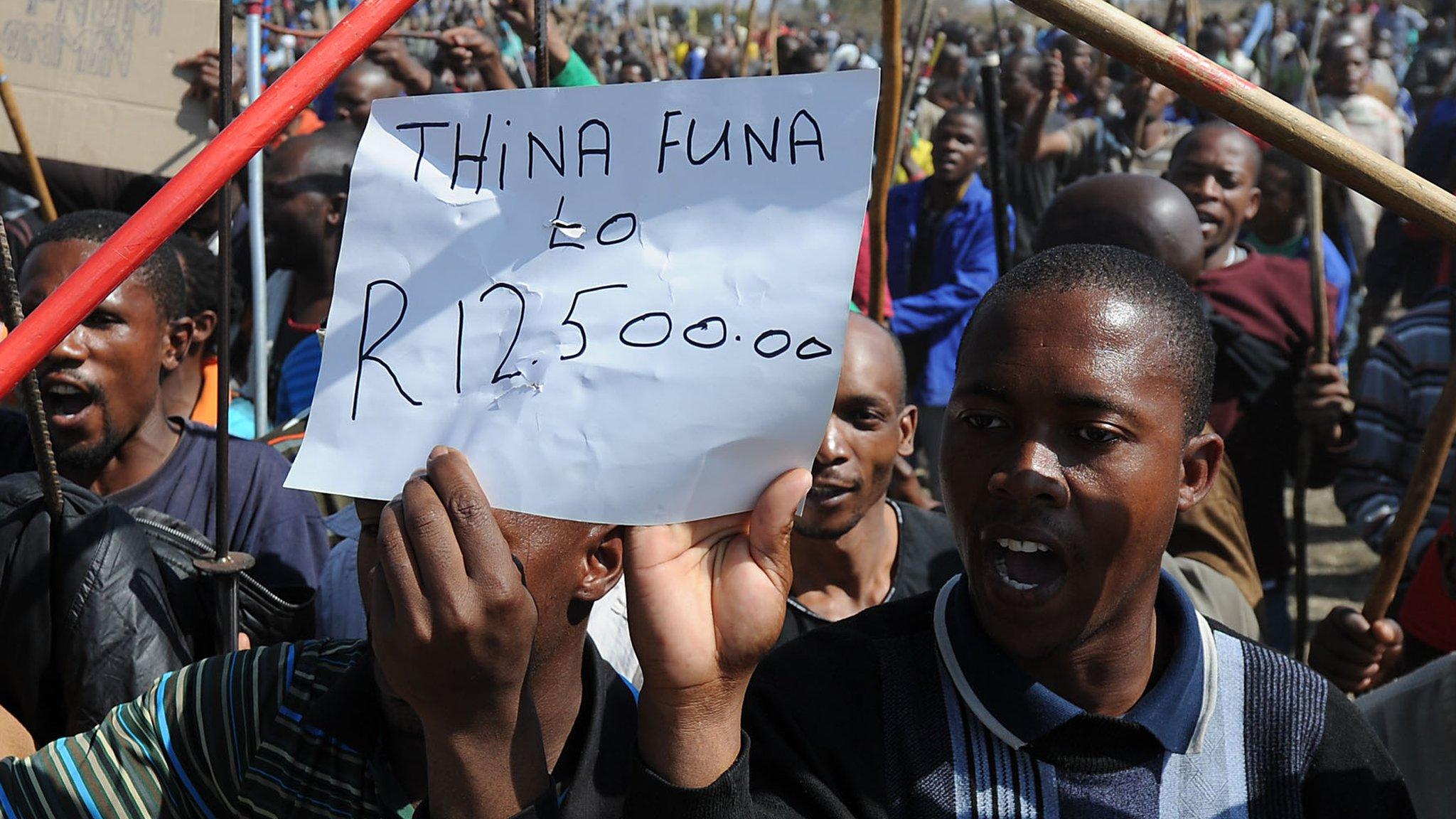South Africa police accused over Marikana mine deaths
- Published
34 miners during a strike in 2012 as Andrew Harding reports
A South African commission has recommended a criminal investigation into police over the deaths of 34 miners during a strike in 2012.
President Jacob Zuma said the inquiry concluded the police had a "defective plan" to end the strike at the Marikana mine and were wrong to proceed with it.
Police have always claimed self-defence over the shooting of the workers during a protest over wages.
Mr Zuma called it a "horrendous tragedy that has no place in a democracy".
"We should, as a nation, learn from this painful episode. We should use it to build a more united, peaceful and cohesive society," he said.
Criminally liable?
The killings were the worst violence in South Africa since the end of apartheid 20 years ago, and led to intense scrutiny over the roles of the police, mining companies, unions and the government.
The miners had been striking for a number of days, and 10 other people had already died at the site - including non-striking miners, security guards and two police officers - before the events of 16 August.
Reading out the findings of the inquiry, Mr Zuma said that the police had planned to encircle the strikers with barbed wire in the morning and allow them out after disarming them.
But as the number of strikers grew later in the day, they implemented a "tactical option" which the commission said was "defective in a number of respects".
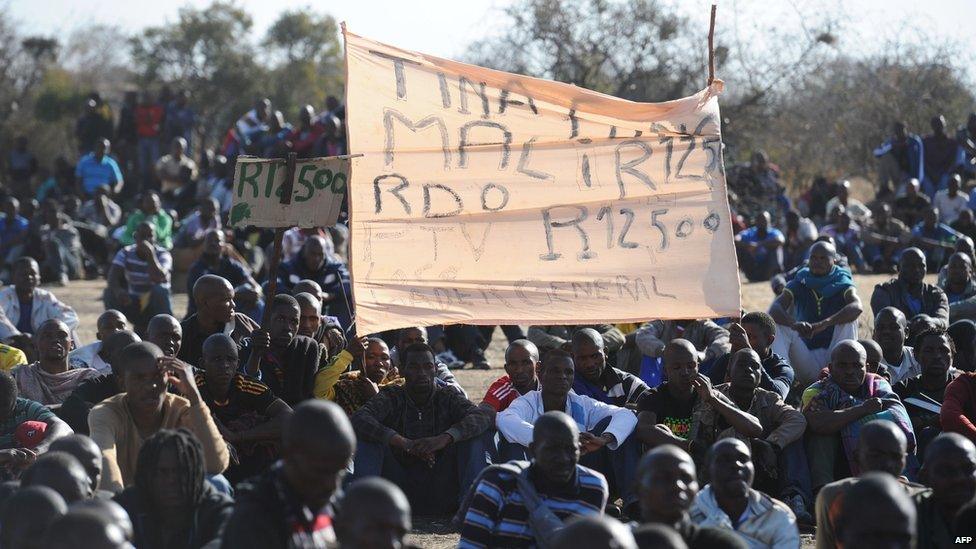
The miners had been protesting over wages and conditions
The commission concluded the police should have appreciated that the situation was such that "it would have been impossible to disarm and disperse the strikers without significant bloodshed".
Police were accused of allowing the situation to get out of control.
In its conclusions, the commission said a full investigation should be launched to determine whether any officers are criminally liable. It also called for an inquiry into whether police chief Riah Phiyega was fit to hold office.
The report also criticised the delay in getting medical attention to the injured, which it said contributed to the death of at least one of the workers.
It recommended that a panel of experts should be set up to revise policing methods and investigate new tactics for crowd control that do not involve "weapons capable of automatic fire".

Analysis: Milton Nkosi, BBC News, Johannesburg
Judging by what President Zuma said when he released the report, there will be many disappointed people in South Africa tonight.
It seems that the person who will carry the can of the first massacre by the state since the end of apartheid will be police chief Riah Phiyega.
President Zuma said that his deputy Cyril Ramaphosa, who was a shareholder at Lonmin at the time of the killings, has been exonerated.
This will certainly not go down well with opposition parties, who have been a thorn in his side over the controversial security upgrades at the president's home in Nkandla.
Mr Zuma can expect an even noisier national assembly flowing directly from his address to the nation tonight.

Both the mining unions and Lonmin, the mine's owners, were criticised for not doing enough to resolve the original dispute, which was over pay and accommodation.
But the commission did exonerate two government ministers and Cyril Ramaphosa, who was a non-executive director at Lonmin at the time and is now South Africa's deputy president.
It said the accusation that Mr Ramaphosa had put pressure on the police to take action against the strikers was "groundless".
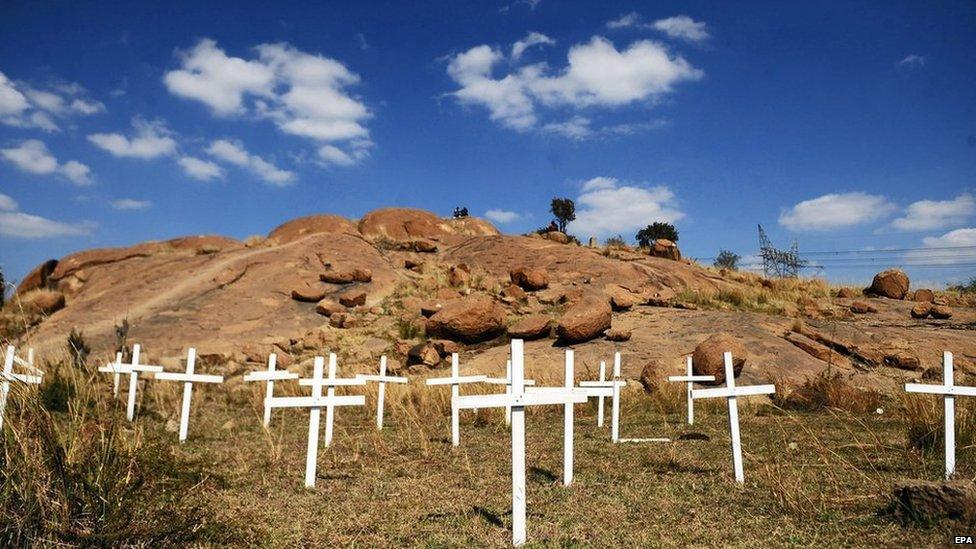
The killings were the worst violence in South Africa since the end of apartheid
Lonmin has called the findings of the commission a "vital step in the healing process".
The commission, headed by retired judge Ian Farlam, has spent nearly three years investigating the shooting and the issues surrounding it.
No-one has been charged or held responsible for the killings. A lawyer, acting for the injured miners, said that they were looking into instituting civil claims.
Some of the lawyers for the dead miners' families have also made accusations of a cover-up, describing the killings as revenge by the police for earlier deaths at the mine.
- Published26 June 2015
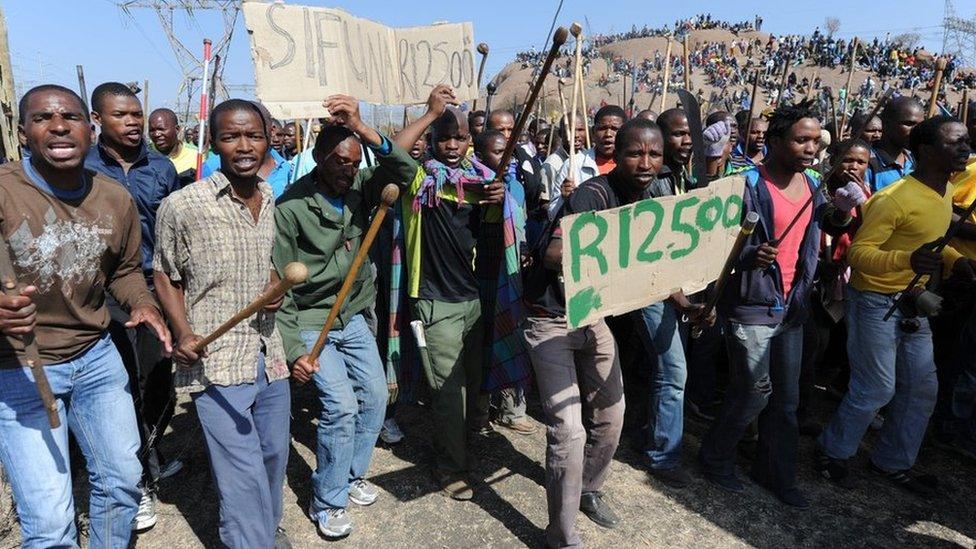
- Published14 November 2014
- Published28 May 2014
- Published21 April 2013
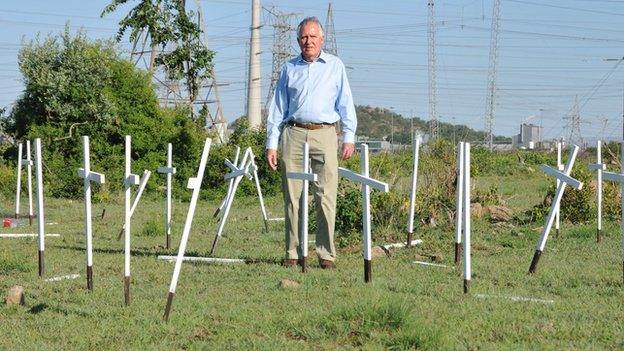
- Published15 August 2013
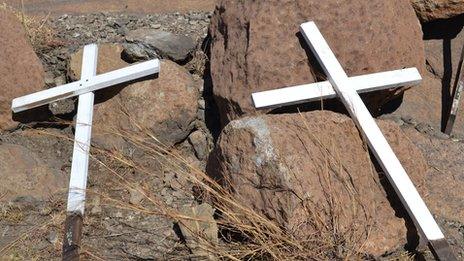
- Published16 August 2013
